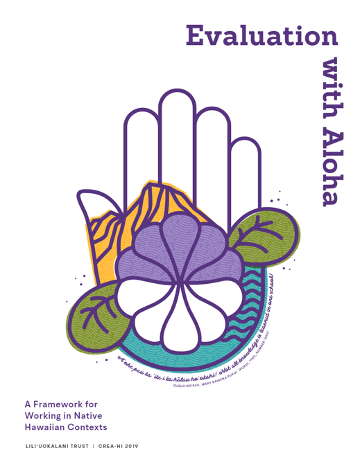Curator’s note: This week’s AEA365 posts contain Hawaiian language words that use certain diacritical markings. We make our best efforts to include these markings to be as culturally and grammatically accurate as possible, however, these markings often display as question marks or boxes, and may display differently on different browsers and devices. For best readability we have omitted some of those marks here.
Aloha, my name is Patrick Uchigakiuchi, and I am from Honolulu, Hawai‘i. I would like to share some lessons I have learned as a researcher and program evaluator coming from an academic perspective and working with Native Hawaiians and their Hawaiian culture-based programs addressing equity and justice issues. While these are lessons frequently shared by other bloggers, I’m hoping that sharing similar ideas gained from my personal experiences might provide a nuanced perspective that resonates for some readers.
Lessons Learned:
There is a long history of harm to indigenous peoples stemming from research and evaluation conducted in ways that are disrespectful and not responsive to their culture, history, and values. Toevaluate with Aloha means evaluation practitioners and practice must be pili (closely bound) to key stakeholders and the evaluand.
Role of the Evaluator: Everyone involved in a project, including participants, project staff, and evaluator are considered equal partners with each sharing his/her unique knowledge and gifts in ways that are reciprocal and for the benefit of individuals, their families, and their larger community. An important contribution that evaluators can provide to community initiatives is to serve as translators specifying how scientific ways of thinking and methodologies practiced can be adapted as useful tools toward accomplishing culturally relevant impacts for their communities rather than becoming inflexible constraints. Evaluators can also function as navigators for communities who operate outside of institutions to avoid bureaucratic pitfalls while identifying pathways to available resources and support. Evaluators can develop trusting relationships with community partners by listening with compassion, discerning what is meaningful to the community in terms of programs, measures, and outcomes, and most importantly, focusing on incorporating the strengths and gifts of the community that become empowering and work to instill hope.
Process is Primary: Creating safe spaces for everyone, including evaluators, to share their stories is a critical process that evaluators can contribute to a project. This allows everyone’s voices to be heard equally, with empathy and compassion. This process creates connections among individuals that form effective and united communities joined together by the common threads found in their shared stories.
Cooperation and Collaboration are desired Outcomes: Many of the major challenges we address are extremely complex, have long histories as intractable social justice problems, call for solutions that require significant amounts of time and commitment, and are multi-generational in nature. By recognizing that cooperation and collaboration, and not competitive attitudes, are inherent human qualities that have been critical to the survival and flourishing of our cultures, we are able to persevere and ultimately succeed. Ethically, evaluators need to be clear for ourselves what is at stake, to whom are we accountable, and what are our obligations to the individuals, families, communities, stories, and places involved in our work.
Rad Resources:
- Kathy Tibbetts previously blogged here during “Decolonizing Evaluation Week”: The Role of Aloha in Decolonizing Evaluation”
- Evaluation with Aloha: A framework for working within Native Hawaiian contexts
Hot Tip:
We include in each of our posts this week indicators of well-being from K?kulu Kumuhana: Creating radical and new knowledge to improve Native Hawaiian Well-being. Today we offer pilina which refers to quality relationships and giving support to one another — braiding together. Pronounced /pee-lee-nah/.

The American Evaluation Association is hosting CREA-HI Week. The contributions all this week to aea365 come from members of the Hawai’i affiliate of Cultural Responsive Evaluation and Assessment (CREA). Do you have questions, concerns, kudos, or content to extend this aea365 contribution? Please add them in the comments section for this post on the aea365 webpage so that we may enrich our community of practice. Would you like to submit an aea365 Tip? Please send a note of interest to aea365@eval.org. aea365 is sponsored by the American Evaluation Association and provides a Tip-a-Day by and for evaluators. These views and opinions do not necessarily represent those of the American Evaluation Association, and/or any/all contributors to this site.
